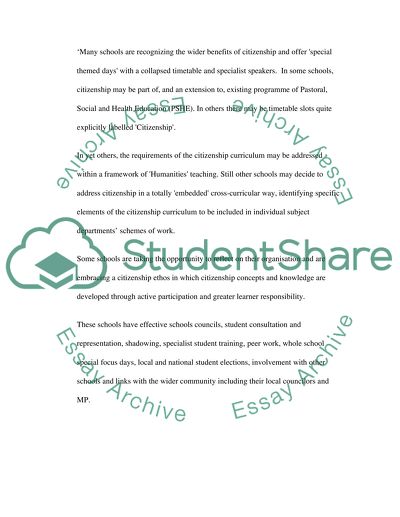Cite this document
(The Advantages of Teaching Citizenship as a Discrete Subject Coursework, n.d.)
The Advantages of Teaching Citizenship as a Discrete Subject Coursework. Retrieved from https://studentshare.org/education/1542497-the-advantages-of-teaching-citzenship-as-a-discrete-subject-over-teaching-it-through-other-subject-areas-of-the-curriculum
The Advantages of Teaching Citizenship as a Discrete Subject Coursework. Retrieved from https://studentshare.org/education/1542497-the-advantages-of-teaching-citzenship-as-a-discrete-subject-over-teaching-it-through-other-subject-areas-of-the-curriculum
(The Advantages of Teaching Citizenship As a Discrete Subject Coursework)
The Advantages of Teaching Citizenship As a Discrete Subject Coursework. https://studentshare.org/education/1542497-the-advantages-of-teaching-citzenship-as-a-discrete-subject-over-teaching-it-through-other-subject-areas-of-the-curriculum.
The Advantages of Teaching Citizenship As a Discrete Subject Coursework. https://studentshare.org/education/1542497-the-advantages-of-teaching-citzenship-as-a-discrete-subject-over-teaching-it-through-other-subject-areas-of-the-curriculum.
“The Advantages of Teaching Citizenship As a Discrete Subject Coursework”. https://studentshare.org/education/1542497-the-advantages-of-teaching-citzenship-as-a-discrete-subject-over-teaching-it-through-other-subject-areas-of-the-curriculum.


